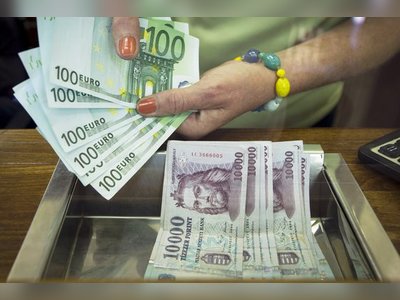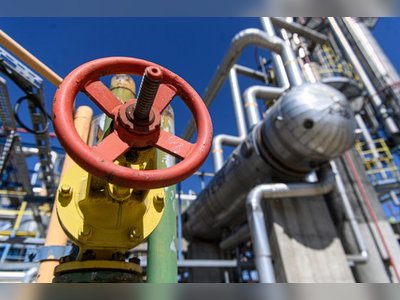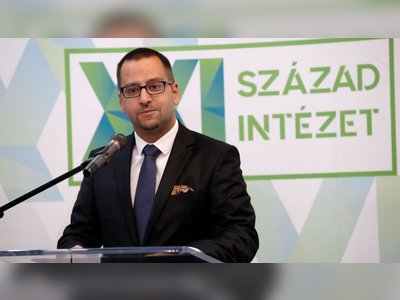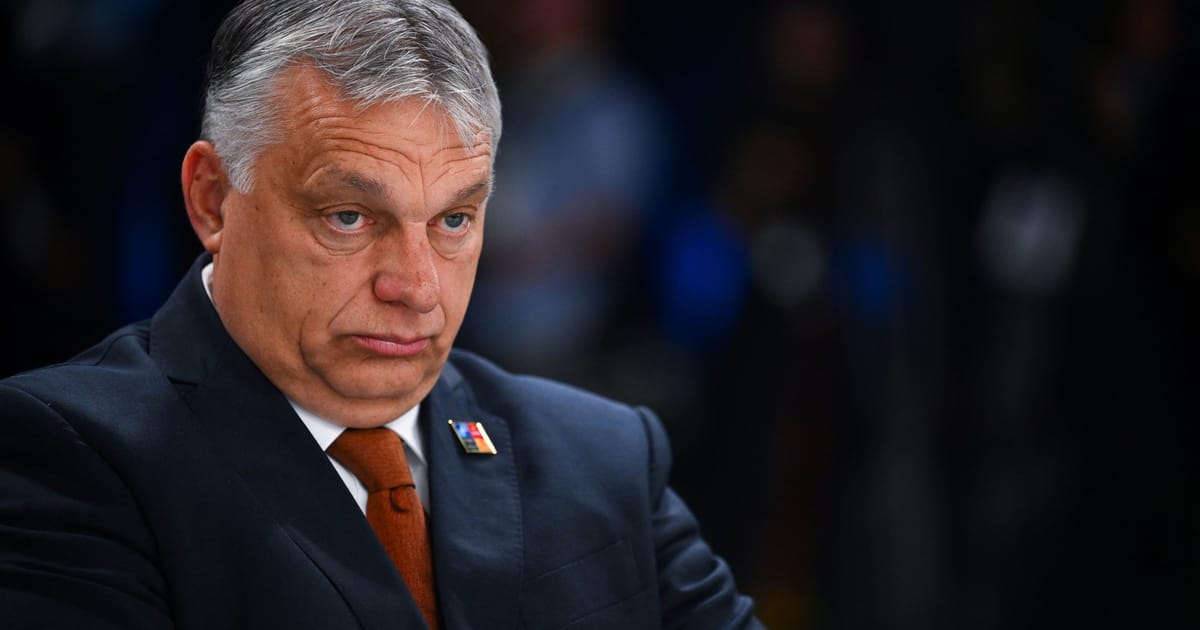
Orbán is telling Ukraine to quit
Viktor Orbán wants Ukraine to give up.
As Ukrainian flags fly across European capitals and Western tanks come to Ukraine’s rescue, Hungary’s prime minister is openly questioning Ukraine’s viability as a sovereign state. In Budapest, his government has lined the streets with anti-sanctions billboards. The Hungarian State Opera is staging a production of Sergei Prokofiev’s “War and Peace.”
Russia, Orbán recently told an eclectic group of foreign conservative figures, has already succeeded in making Ukraine an ungovernable wreck.
“It’s Afghanistan now,” Orbán said during a roundtable discussion described in The American Conservative. Vladimir Putin will not lose and time is on Russia’s side, he argued, calling Ukraine “the land of nobody.”
It’s a message almost diametrically opposed to the rhetoric flying around the rest of the Western alliance, which just last week pierced yet another red line when it pledged to give Ukraine dozens of modern tanks. And it’s heightening tensions between Hungary and neighboring Ukraine. Orbán’s remarks sparked outrage among Ukrainian officials, who said they would summon Hungary’s ambassador.
Back in Budapest, Orbán’s approach is seen as partly a domestic political ploy to distract from Hungary’s economic woes, as well as a nod to nationalist voters. But there is also a sense among experts that Orbán’s rhetoric is about more than just short-term politicking — the Hungarian leader, they say, wants to preserve his long-standing relationship with the Kremlin.
Either way, the fallout illustrates the growing gulf between Orbán and the rest of his EU and NATO allies.
“Political leaders in the government of Hungary often speak of promoting peace, but — from condemning sanctions to embracing Russian ‘cease-fire’ proposals — they continue to push policies endorsed by Putin,” said David Pressman, the U.S. ambassador in Budapest.
“We join the Hungarian government’s call for peace, but those calls should be directed to Vladimir Putin,” he said in an emailed statement, adding that Washington “will continue to advocate for an end to this war by standing resolutely with the victims of it.”
But while the majority of Western allies moved to provide taboo-breaking support for Ukraine, Hungary is doubling down on its stance that Kyiv should simply stop fighting.
“Our elementary humanity and sense of morality,” Orbán told state radio on Friday, “demands that we do everything we can to freeze the front line, for there to be a cease-fire and for negotiations to start.”
Orbán’s goals
Experts say Orbán is not anti-Ukrainian — his rhetoric is simply an effort to play both sides and win political points at home.
The prime minister has spent years implementing a dual foreign policy: enjoying the benefits of EU and NATO membership while developing lucrative relationships with Moscow, Beijing and other authoritarian capitals.
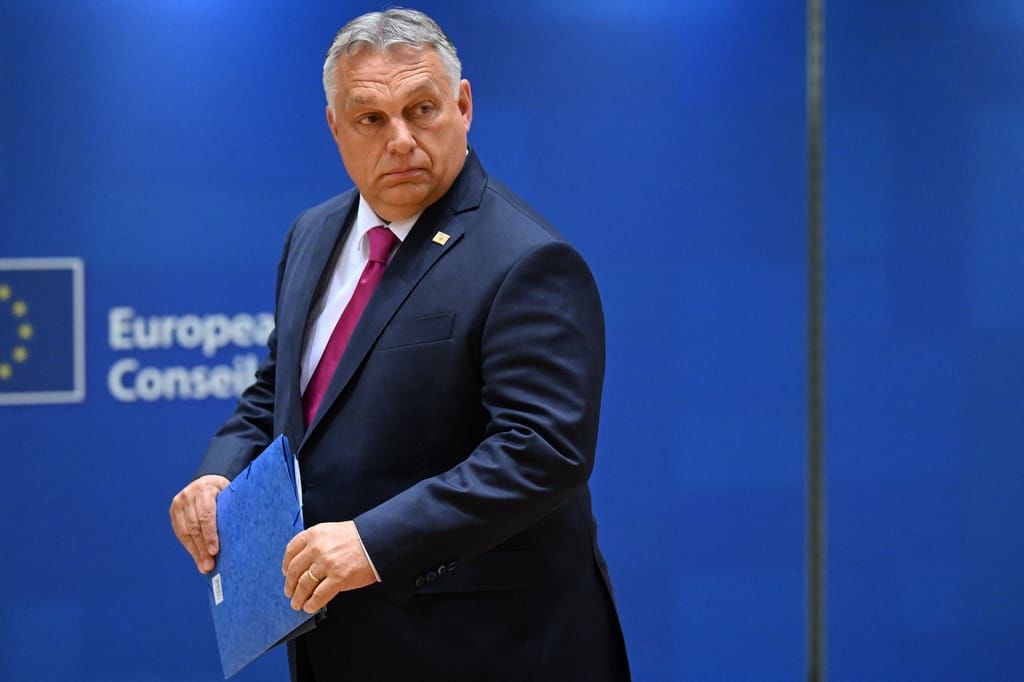 Hungarian Prime Minister Viktor Orbán
Hungarian Prime Minister Viktor Orbán
And when the same Russian government he courted invaded Hungary’s neighbor, Orbán condemned the invasion — but didn’t fully drop his Russia-friendly stance.
Hungary is still going ahead with a nuclear power plant expansion project together with Russia’s Rosatom. And Hungarian officials keep traveling to Russia to discuss energy deals. The country, which is heavily reliant on Russian gas, signed a deal for even more supplies last summer — just as others were seeking to reduce their imports.
And while Budapest approved the EU’s sanctions packages, Orbán has sought to water down some provisions. Meanwhile, back home, he has been running a vast anti-sanctions campaign blaming Brussels for Hungary’s economic woes.
“Orbán invested a lot” in his Russia-friendly policies, said Péter Krekó, director of the Political Capital Institute, a research body that specializes in Hungarian foreign policy.
“There is an inertia that brings him to that direction,” he said. “It seems that [the] government is not really able to correct these mistakes.”
There’s a history there, too
Hungary and Ukraine also have a long, troubled relationship due to a dispute over the language rights of Hungarian speakers living in western Ukraine. Predictably, Orbán’s stance since the invasion began — not to mention his latest comments — has only deepened those tensions.
“This unfortunately is clearly Russian rhetoric,” said Ivanna Klympush-Tsintsadze, chair of the Ukrainian parliament’s committee on EU integration, when asked about Orbán’s latest comments.
“Hungary has long been an enemy of freedom,” she said in a text message. “We are surprised,” she added, that Hungarian statements and activities “have not yet received a proper response from within [the] EU and NATO.”
The prime minister’s critics were quick to distance themselves from the government’s approach to Ukraine, arguing Orbán does not represent all Hungarians.
“Orbán’s comment is beyond shameful,” said Hungarian MEP Katalin Cseh, who recently returned from a trip to Kyiv together with other members of the opposition Momentum party.
Ukraine, she said, is “a land of brave freedom fighters and fellow Europeans, who deserve our utmost respect.”
The Hungarian government did not respond to requests for comment. Hungary’s foreign ministry, however, insisted that the government is well-intentioned.
Responding to Kyiv’s decision to summon its ambassador, the ministry told a pro-government outlet that the war is leading to deaths and turning parts of Ukraine “into a wasteland.”
“This is why,” the ministry said, “Hungary wants peace and an immediate cease-fire instead of arms deliveries.”
Saying what he thinks others won’t
The prime minister’s rhetoric on Ukraine is partly due to an early miscalculation about the trajectory of the conflict, experts say.
“The government was betting on a quick resolution to the conflict and hoped that Hungary would benefit from maintaining its relationship with Russia,” said Zselyke Csaky, a fellow at the European University Institute.
“Some obviously thought that Hungary could become a sort of ‘bridge’ between Russia and the rest of Europe and reap the trade and other benefits in the meantime,” she said, adding that now “it’s clear that this won’t happen.”
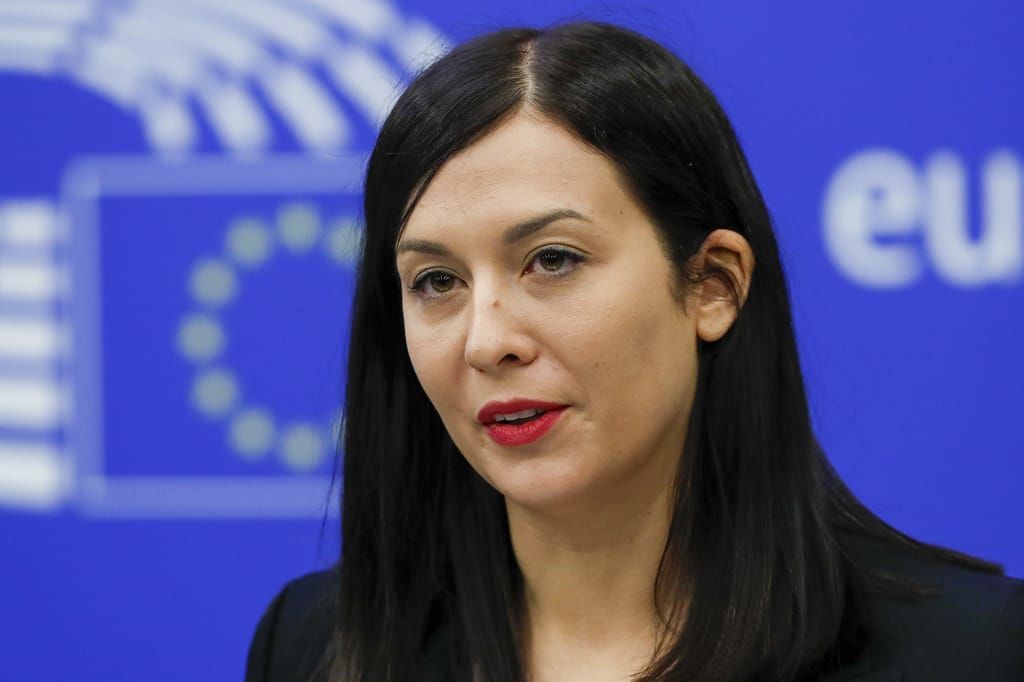 Hungarian MEP Katalin Cseh
Hungarian MEP Katalin Cseh
Hungarians who know the prime minister well personally say part of the explanation for Orbán’s controversial comments is that the longtime politician likes to be outspoken on issues he believes other leaders are too timid to address.
“I think he’s doing this because he believes that this is what actually many Europeans think — and he expects that Europe eventually will not stand by Ukraine,” said Zsuzsanna Szelényi, who was a member of Orbán’s Fidesz party in the early 1990s and is now a critic of the government.
In his discussion with foreign conservatives, Orbán alluded to his belief that some politicians may secretly agree with him.
“The Germans are suffering because they know what’s in their national interest, but they’re not able to say it,” he argued.
But there is also a sense in Budapest that Orbán is often criticizing the West’s response to the war because business circles close to the ruling party still benefit from economic links to Moscow — and because he wants to strengthen his case for opposing sanctions.
The prime minister “essentially seeks to create a justification to oppose any further sanctions that may indeed start to hurt its own relations with Moscow,” said Zsuzsanna Végh, a visiting fellow at the German Marshall Fund.
Orbán’s rhetoric also plays well with a segment of his electorate.
In Hungary’s nationalist history “you have the tradition of the anti-Westernism, and you have the tradition of anti-Russian sentiments as well,” said Political Capital’s Krekó.
Now, he added, the anti-Western approach “trumps” the anti-Russian sentiment.
But always a pragmatist, Orbán is visibly trying to keep his options open.
Szelényi, who recently wrote a book on Orbán’s “tainted” democracy, pointed out that the prime minister has also made unfavorable comments about Russia.
Orbán, she said, is “basically creating a room for maneuvering for himself in this crisis.”





